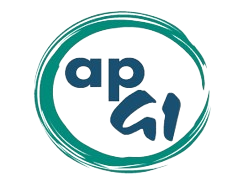Every year, the “APGI Young Investigator Award” recognizes the most outstanding doctoral thesis in the field of Pharmaceutics, Biopharmaceutics and Pharmaceutical Technology. It is kindly sponsored by Sanofi. The “APGI YOUNG INVESTIGATOR AWARD” (sponsored by Sanofi) recognizes the most outstanding doctoral thesis in the field of Pharmaceutical Technology each year .
If you defended your PhD thesis between 15 novembre 2024 and 14 octobre 2025, you can candidate for the 2025 “APGI YOUNG INVESTIGATOR AWARD”.
Please send a pdf file of your thesis (in French or English) and a short curriculum vitae, by 30 October 2025, to APGI (apgi@apgi.org) and Géraldine Piel (geraldine.piel@uliege.be). The file can be sent by We Transfer (a compressed version would be appreciated).
APGY YOUNG INVESTIGATOR AWARD 2025
The “APGI YOUNG INVESTIGATOR AWARD” recognizes the most outstanding doctoral thesis in the field of Pharmaceutical Technology each year .
The price has been officially awarded during the 5th European Conference on Pharmaceutics, 24-25 March 2025 in Porto, Portugal.
Young Investigator Award 2025
Dr. Léa Guerassimoff – University Paris-Saclay
Thesis: Synthesis and evaluation of stimuli-responsive polymer prodrugs for combination therapy and subcutaneous administration of irritant anticancer drugs
Supervisor: Dr. Julien Nicolas
For years, cancer therapy has relied on the use of conventional chemotherapy which however presents major limitations, both for the patient and for the hospital including: (i) off-target toxicity; (ii) drug cell resistance; (iii) toxicity from the drugs and (iv) high cost. The use of nanotechnology to deliver anticancer drugs has been extensively developed to overcome such limitations especially via polymer nanoparticles, that have gained interest regarding their ease of functionalization allowing the facile insertion of chemical moieties required for active targeting and stimuli-responsiveness. However, polymer nanoparticles are still facing an abrupt and uncontrolled release of the drug post-administration (i.e., burst release), degradation issues when vinyl polymers are employed and remaining traces of toxic organic solvent from formulation processes. During this PhD, we developed thermoresponsive polymer prodrugs to overcome major challenges of chemotherapy, notably by: (i) reducing the off-target toxicity and burst release of nanocarriers via the administration of an inactivated form of the drug using polymer prodrugs, (ii) improving the biocompatibility of polymeric NPs by formulating them only in water using the thermosensitivity of polymer prodrugs, (iii) overcoming the drug resistance by designing thermosensitive polymer prodrug nanocarriers that contain two active anticancer ingredients for combination therapy, (iv)facilitating the nanocarrier clearance using rapidly degradable polymers and (v) proposing a less-costly and more comfortable administration of chemotherapeutics by designing thermosensitive polymer prodrugs suitable for subcutaneous (SC) administration.
LCST and pH-sensitive polymer prodrugs of gemcitabine (Gem) were synthesized and their transition temperature (Tcp) was adjusted to develop an innovative all-aqueous thermo-driven formulation method. In vitro evaluation of the resulting nanoparticles led to significant toxicity on different cancer cell lines. This new formulation process was also extended to the physical encapsulation of doxorubicin (Dox) as a second anticancer agent for combination therapy purposes, leading to dual-drug Gem/Dox nanoparticles able to induce a synergistic effect invitro, confirmed by the calculation of the combination index.
UCST and degradable polymer prodrugs of Gem were developed by extension of the previous work on P(AAm-co-BMDO) copolymers. The optimization of the monomer ratio led to a Tcp of around 34 °C, allowing a complete water-solubility in the SC tissue and fast hydrolytic degradation under physiological conditions, ensuring rapid and complete excretion of the materials. After demonstrating significant in vitro cytotoxicity, these Gem-based prodrugs were applied to the SC administration in vivo resulting in the absence of irritant effect conversely to free Gem even at high doses.
This work has presented stimuli-responsive prodrugs devoted to a non-toxic formulation method for easier clinical translation of drug delivery nanocarriers and to an efficient and safer administration of chemotherapeutics using a less costly administration route.

